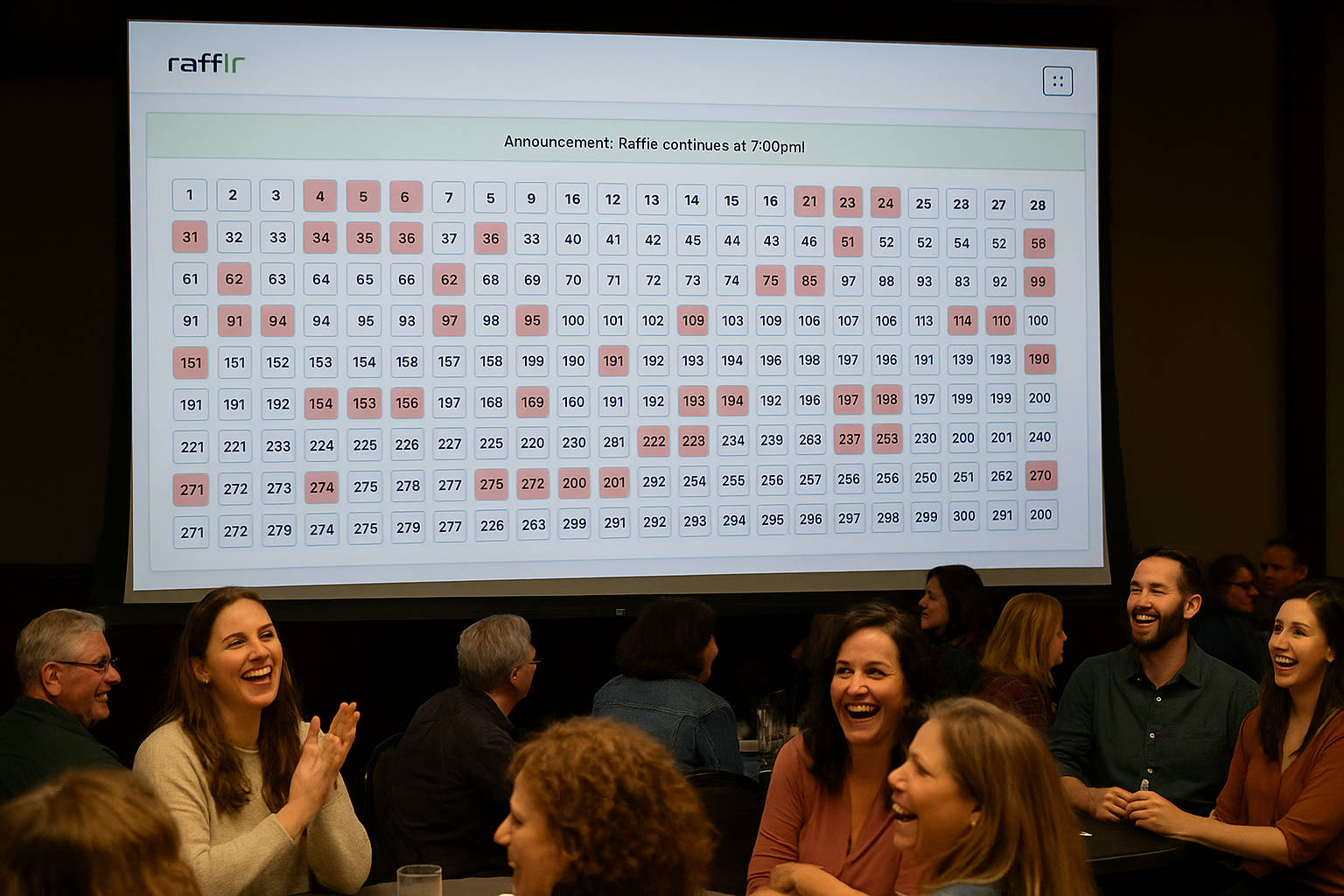Understanding why people buy raffle tickets goes far beyond simple prize attraction or charitable impulses. Behavioral psychology research reveals complex motivations involving social connection, optimism bias, loss aversion, and identity reinforcement that drive raffle participation. Organizations that understand these psychological triggers can design more effective fundraising campaigns, increase ticket sales, and build stronger donor relationships through strategic application of behavioral insights.

The Dual Motivation Model: Charity Meets Chance
Raffle ticket purchases involve dual psychological motivations that distinguish them from pure gambling or charitable giving. Participants simultaneously satisfy charitable impulses and entertainment desires, creating a unique psychological justification system.
Primary Psychological Drivers
- Charitable Justification: The cause provides moral permission for gambling-like behavior
- Hope and Optimism: Positive future visualization overcomes rational odds assessment
- Social Connection: Community participation satisfies belonging and identity needs
- Controlled Risk-Taking: Safe excitement within socially acceptable boundaries
- Impact Visualization: Tangible cause connection makes giving feel more meaningful
Loss Aversion and the Fear of Missing Out (FOMO)
Behavioral economics shows people fear losing opportunities more than they value equivalent gains. Raffles trigger loss aversion by creating time-limited opportunities with social proof of participation.
FOMO Activation Strategies
- Limited Time Frames: Clear deadlines create urgency and decision pressure
- Social Proof Indicators: Displaying participation levels encourages conformity
- Exclusive Access Elements: VIP ticket levels or early-bird opportunities
- Progress Visualization: Showing ticket sales progress toward goals
- Scarcity Messaging: Limited ticket availability or exclusive prize access
See rafflr in Action
Watch a 2-minute demo of how professional raffle software leverages psychology to increase participation and donations
The Psychology of Prize Perception and Value
Prize selection significantly impacts psychological appeal beyond monetary value. Research shows perceived value, personal relevance, and social status considerations influence ticket purchasing decisions more than actual retail prices.
Psychological Prize Optimization
- Lifestyle Enhancement: Prizes that improve daily life or fulfill aspirations
- Experience Over Objects: Memorable experiences create stronger emotional connections
- Social Currency Value: Prizes that provide social status or conversation starters
- Problem Solving Relevance: Items that address common challenges or needs
- Aspiration Alignment: Prizes matching participants' identity and goals
Social Identity and Community Belonging
Raffle participation often reinforces social identity and community membership. People buy tickets to signal values, support group belonging, and demonstrate community commitment.
Identity-Based Motivation Factors
- Values Expression: Supporting causes that reflect personal values and beliefs
- Group Membership: Participating in activities that define community belonging
- Social Recognition: Public acknowledgment of support and participation
- Peer Influence: Participating because friends, family, or colleagues are involved
- Identity Consistency: Acting in ways consistent with self-concept and reputation
Optimism Bias and Probability Misperception
Cognitive biases lead people to overestimate their chances of winning while underestimating risks. Understanding these biases helps organizations design more appealing raffle structures.
Cognitive Bias Applications
- Availability Heuristic: Highlighting recent winners makes success seem more common
- Anchoring Bias: First-mentioned prize values influence perception of all prizes
- Confirmation Bias: People seek information that supports their decision to participate
- Overconfidence Effect: Participants believe they have better-than-average chances
"Successful raffle marketing understands that people buy tickets with their hearts and justify with their heads. The emotional decision comes first, followed by rational justification." - Journal of Behavioral Economics
The Power of Small Commitments and Escalation
Psychological research on commitment and consistency shows small initial commitments lead to larger subsequent commitments. Raffle organizations can leverage this through strategic ticket pricing and participation ladders.
Commitment Escalation Strategies
- Low-Barrier Entry: Affordable initial ticket prices reduce participation resistance
- Progressive Incentives: Volume discounts encourage larger purchases
- Multiple Entry Points: Various ways to increase involvement and investment
- Public Commitment: Social media sharing and public recognition
- Repeat Engagement: Annual events that build participation habits
Emotional Triggers and Storytelling Psychology
Emotional engagement drives raffle participation more than rational arguments. Effective raffle marketing uses storytelling, imagery, and emotional triggers to create compelling participation narratives.
Emotional Engagement Techniques
- Beneficiary Stories: Personal narratives that humanize the cause
- Transformation Imagery: Visual representations of positive impact
- Community Connection: Stories that emphasize local impact and relationships
- Hope and Possibility: Messages that emphasize positive future outcomes
- Urgency and Importance: Time-sensitive needs that require immediate action
Gender and Demographic Psychological Differences
Research reveals demographic differences in raffle motivation and participation patterns. Understanding these differences enables more targeted and effective marketing approaches.
Demographic Insights
- Age Factors: Younger participants focus on experiences; older participants prefer practical prizes
- Gender Differences: Women often emphasize cause connection; men may focus on prize value
- Income Considerations: Higher-income participants seek unique experiences; others prefer practical items
- Cultural Variations: Community-focused messaging resonates differently across cultural groups
Professional raffle management software can help organizations apply psychological insights through targeted marketing, personalized communications, and optimized user experiences.
Practical Applications of Raffle Psychology
Understanding donor psychology enables organizations to design more effective raffle campaigns that increase participation while maintaining ethical standards and genuine charitable impact.
Implementation Strategies
- Multi-Tier Pricing: Options that accommodate different psychological comfort levels
- Social Proof Integration: Real-time participation updates and community testimonials
- Cause Connection Enhancement: Clear linkage between ticket sales and specific outcomes
- Personalization Elements: Customized communications based on participant history and preferences
- Community Building: Events and communications that strengthen participant relationships
Ready to Apply Psychology to Your Raffles?
Join organizations using psychological insights and professional raffle software to create more engaging, successful fundraising campaigns.
Get Started with rafflr30-day money-back guarantee on all plans